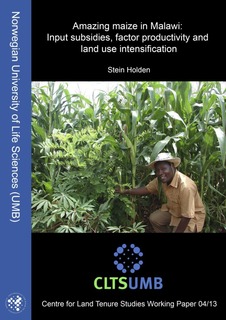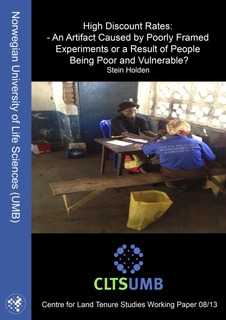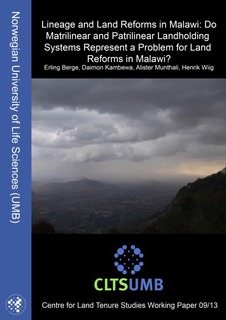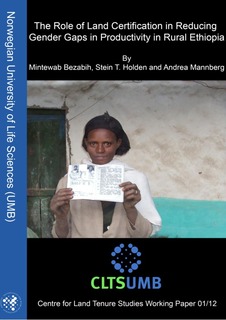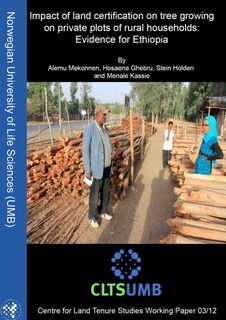Location
The Centre for Land Tenure Studies was opened at the Nowegian University of Life Sciences (NMBU) on the 27th of June 2011 resulting from a joint initiative by researchers at the Department of International Environment and Development (Noragric), the School of Economics and Business, and the Department of Landscape Architecture and Spatial Planning. In 2012 was joined by the Department of Ecology and Natural Resource Management.
Mission
The Centre for Land Tenure Studies (CLTS) at NMBU is established to further the study of land tenure. Land tenure studies define a broad and complex field of study cutting across many disciplines. For CLTS this entails, but is not limited to, the following activities:
- Provide a common arena for discussing land tenure issues, including a series of seminars directed to present new research or important theoretical perspectives. This may be designed as part of an educational program.
- Promulgate a joint series of working papers.
- Support international publication of articles and books.
- Develop and conduct joint courses at both Master and PhD level.
- Initiate and support exchange of researchers.
- Participate in research networks related to land tenure.
- Maintain a public list of collaborating institutions and researchers.
- Initiate and develop applications for research funds to support basic research on land tenure both by our own efforts and in collaboration with other research groups working on land tenure questions.
In its activities the centre will use English as its working language as far as practically possible. In short we may say that the mission of the Centre for Land Tenure studies is to enhance collaboration across departments at NMBU; to strengthen the visibility of NMBU activities within the field of land tenure; to strengthen NMBU’s international collaboration and networks within the field; to contribute to research and knowledge generation on land tenure issues; to help build capacity in the South and in Norway within the field; to disseminate policy lessons, and to contribute to policy debates.
Resources
Displaying 56 - 60 of 67Amazing maize in Malawi : input subsidies, factor productivity and land use intensification
The paper uses three years of household farm plot panel data (2006-2009), covering six districts in central and southern Malawi to assess factor productivity and farming system development under the input subsidy program. All farm plots of the households were measured with GPS. Maize production intensified in this period as maize area shares of the total farm size were reduced while input use intensity and yields increased. Yields of improved maize were significantly (+323 kg/ha) higher than for local maize.
High discount rates : an artifact caused by poorly framed experiments or a result of people being poor and vulnerable?
This study revisits the issue whether poverty and shocks are associated with high discount rates by using an incentive compatible Multiple Price List approach in a poor rural population in Africa where a substantial share of the population had been affected by drought in the recent rainy season. Randomized treatments included tests for present bias, magnitude effects and time horizon effects.
Lineage and land reforms in Malawi: do matrilinear and patrilinear landholding systems represent a problem for land reforms in Malawi?
This paper is about land tenure relations among the matrilineal and patrilineal cultures in Malawi. Data from the National Agricultural and Livestock Census are used to characterize marriage systems and settlement and landholding patterns for local communities. Marriage systems correspond to customary land tenure patterns of matrilineal or patrilineal land holding. The differences between the two major ways of land holding represent a particular challenge for land reforms intending to unify rules for land tenure and land devolution.
The role of land certification in reducing gender gaps in productivity in rural Ethiopia
This paper analyses the impact of a low cost and restricted rights land certification program on the productivity of female-headed households. The analysis is based on plot level panel data from the East Gojjam and South Wollo Zones in the Amhara region of Ethiopia. The results suggest a positive and significant effect of certification on plot-level productivity, particularly on plots rented out to other operators.








